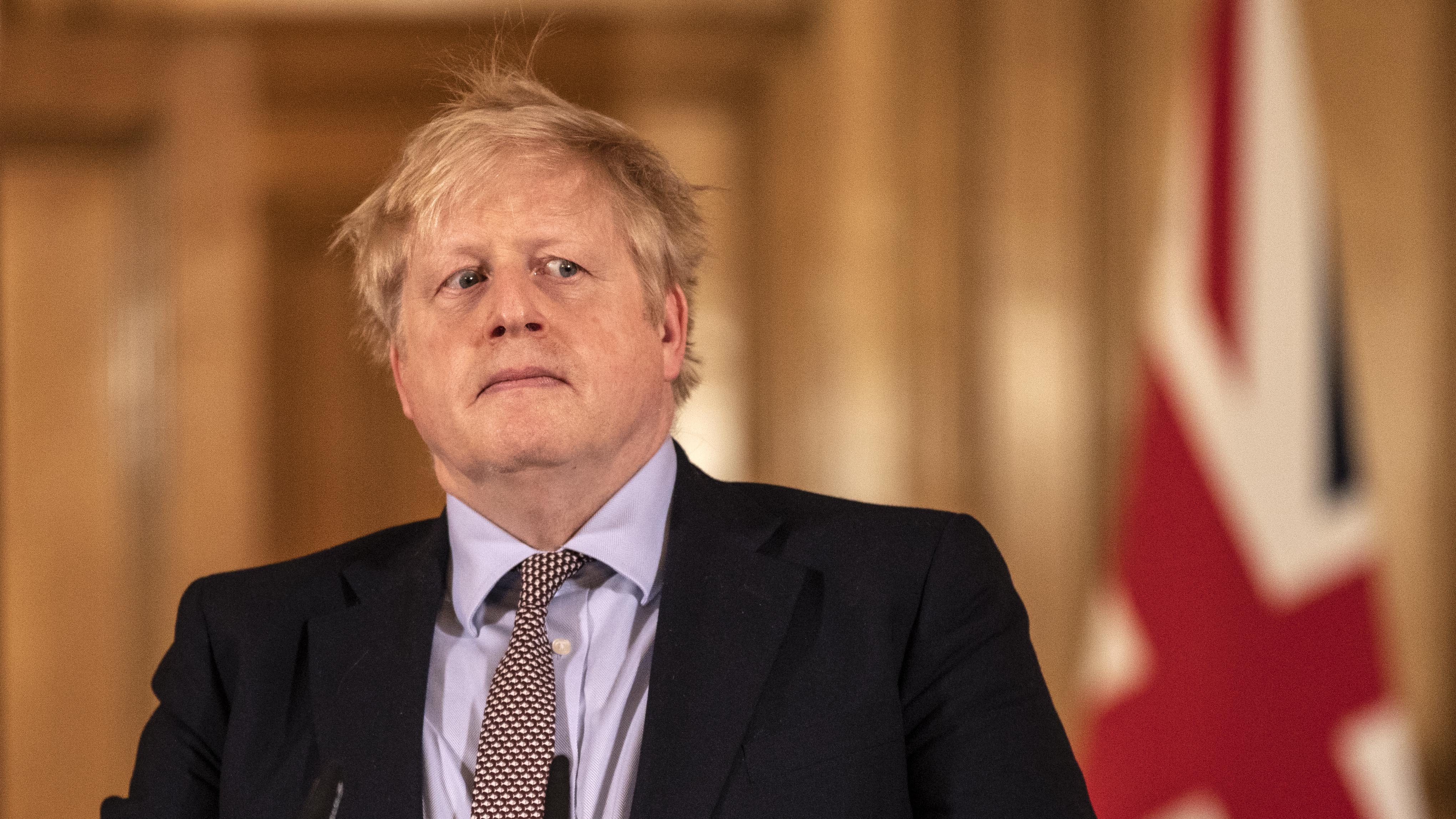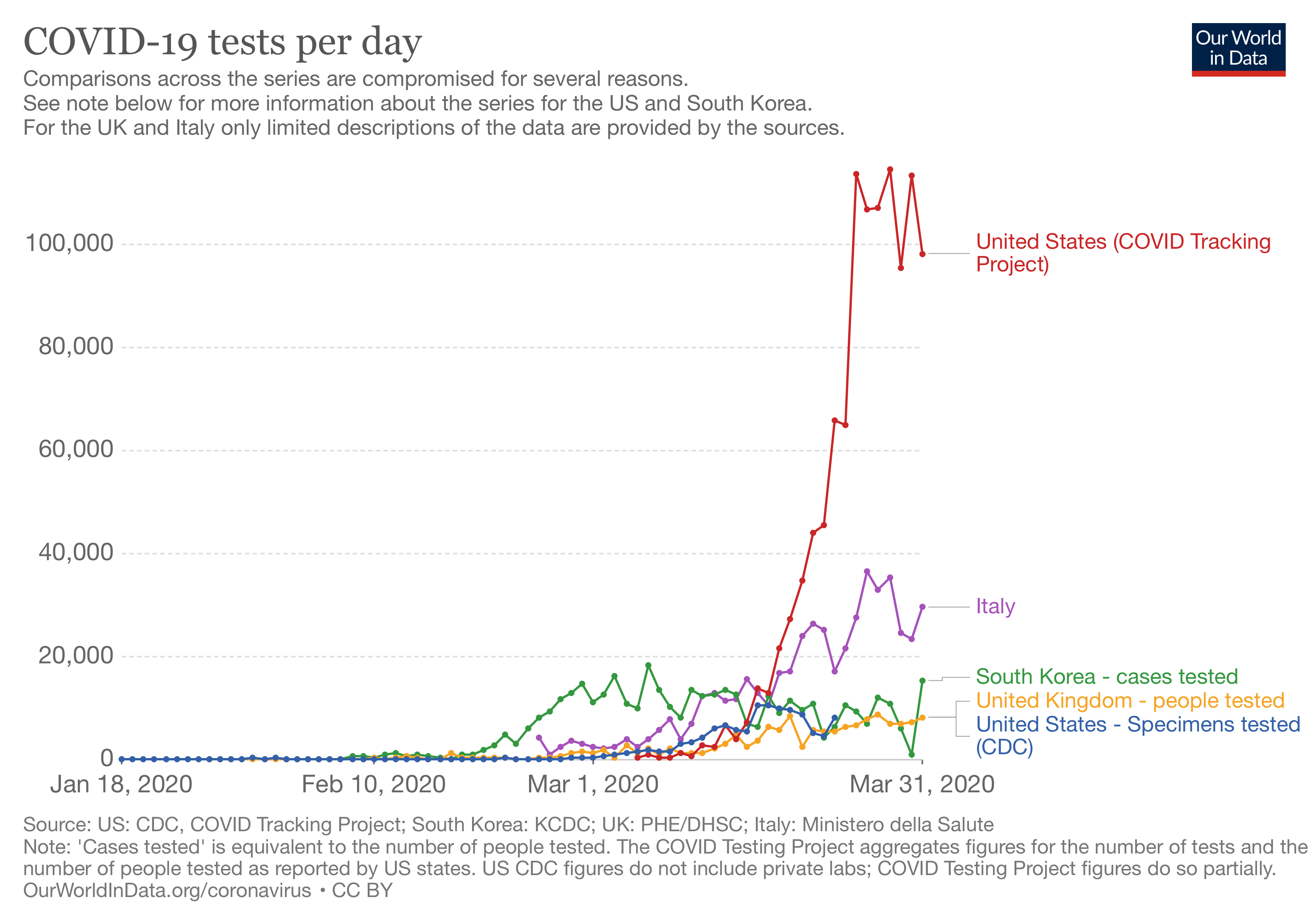Coronavirus: behind the UK government’s testing strategy
UK still trailing rest of the world despite promises to ramp up testing

A free daily email with the biggest news stories of the day – and the best features from TheWeek.com
You are now subscribed
Your newsletter sign-up was successful
Just 2,000 of the half a million front-line NHS workers have been tested for the new coronavirus, Downing Street has admitted.
The revelation has added to a “huge political backlash” against the government over the UK’s poor testing figures compared with other nations, says The Guardian.
With thousands of NHS staff off work with suspected symptoms, many medics have expressed “frustration” that they are being forced to self-isolate when they are needed most, adds Sky News.
The Week
Escape your echo chamber. Get the facts behind the news, plus analysis from multiple perspectives.

Sign up for The Week's Free Newsletters
From our morning news briefing to a weekly Good News Newsletter, get the best of The Week delivered directly to your inbox.
From our morning news briefing to a weekly Good News Newsletter, get the best of The Week delivered directly to your inbox.
In a video posted last night on his Twitter account, Boris Johnson - also currently in self-isolation after testing positive for Covid-19 - promised to “massively ramp up” testing in order to “unlock the coronavirus puzzle”.
So what is the government’s plan?
What is the current situation?
Some NHS labs say they only have enough swabs to carry out a couple of tests a day, while others have seen their capacity reduced by 90% because they are lacking the required chemical components, according to NHS Providers, which represents hospitals across England.
A free daily email with the biggest news stories of the day – and the best features from TheWeek.com
Some hospitals have “had to beg for testing supplies from vets and brew their own chemicals” for testing kits in order to check staff, says The Times.
Healthcare workers are also reportedly being turned away from temporary testing sites at Chessington World of Adventures in Surrey and Ikea in Wembley, north London, because they are not on an official list.
The government has blamed the slow rate of testing on a shortage of specialist chemical reagents needed for the use of testing machines.
Responding to suggestions that the chemicals could be made from scratch by independent labs, Yvonne Doyle, medical director of Public Health England (PHE), said: “The reagents are generally produced by the manufacturers of the machines, and so the reagents that work best are those that work with the machines that they’re intended for, that’s the most efficient.”
Chris Hopson, chief executive of NHS Providers, says that “if existing NHS pathology labs had unlimited swabs and reagent, there is enough test machine capacity to process about 100,000 tests a day, but reagent and swab shortage is currently limiting this to about 13,000 a day”.
–––––––––––––––––––––––––––––––For a round-up of the most important stories from around the world - and a concise, refreshing and balanced take on the week’s news agenda - try The Week magazine. Start your trial subscription today –––––––––––––––––––––––––––––––
What is the government’s plan?
According to The Times, Health Secretary Matt Hancock spoke to industry bodies on Wednesday evening “about using private labs to expand testing as he moved away from relying on standardised procedures”.
Hancock is reported to have said: “I want industry and government to come together to build a UK diagnostic capability that hasn’t previously been seen. I am entirely open-minded about how we do this, but I am determined that it should happen.”
A government source told the newspaper that the goal was to expand testing through an appeal to companies modelled on the drive to manufacture more ventilators. “If there are labs that have tests that work we want to work with them in a national effort,” the insider said.
Professor Julian Peto, an epidemiologist at the London School of Hygiene and Tropical Medicine, says that a “great Dunkirk voluntary effort” is required to speed up the rate of testing.
“Every lab in Britain has got to chip in,” Peto said. “Everybody has got a machine in front of them, they’d love to be doing it.”
Despite the growing calls for action, bosses at the London-based Francis Crick Institute biomedical research centre claim that “more than 100 staff had volunteered to help a fortnight ago but had not yet been put to work”, The Times reports.
Speaking on Wednesday at the government’s daily coronavirus briefing, PHE medical director Doyle insisted that “the intention here is to get from thousands to hundreds of thousands within the coming weeks, so we are very committed to our NHS front-line staff”.
How does the UK compare to elsewhere?
In recent weeks, the UK has double its testing capacity - though not the number of tests it carries out. In the same time, the US has increased its daily testing by a factor of 21, according to the Adam Smith Institute think-tank.
“Several other countries, which have arguably been more successful at controlling their own epidemics – Germany, China and South Korea – have done many more antigen tests than the UK,” reports The Guardian.
South Korea has tested 20,000 people a day. Even the US, accused of sluggishness in the early days of the outbreak, has completed more tests than the UK - 2,248 tests per million compared with the UK’s 1,923, according to the Covid Tracking Project.

Labour’s shadow health secretary Jonathan Ashworth has demanded to know why the UK’s Covid-19 testing is lagging behind other countries.
He said: “NHS staff are rightly asking if we’ve left it too late to buy the kits and chemicals we need, or whether our lab capacity is too overstretched after years of tight budgets.”
-
 The 8 best TV shows of the 1960s
The 8 best TV shows of the 1960sThe standout shows of this decade take viewers from outer space to the Wild West
-
 Microdramas are booming
Microdramas are boomingUnder the radar Scroll to watch a whole movie
-
 The Olympic timekeepers keeping the Games on track
The Olympic timekeepers keeping the Games on trackUnder the Radar Swiss watchmaking giant Omega has been at the finish line of every Olympic Games for nearly 100 years
-
 How corrupt is the UK?
How corrupt is the UK?The Explainer Decline in standards ‘risks becoming a defining feature of our political culture’ as Britain falls to lowest ever score on global index
-
 The high street: Britain’s next political battleground?
The high street: Britain’s next political battleground?In the Spotlight Mass closure of shops and influx of organised crime are fuelling voter anger, and offer an opening for Reform UK
-
 Is a Reform-Tory pact becoming more likely?
Is a Reform-Tory pact becoming more likely?Today’s Big Question Nigel Farage’s party is ahead in the polls but still falls well short of a Commons majority, while Conservatives are still losing MPs to Reform
-
 Taking the low road: why the SNP is still standing strong
Taking the low road: why the SNP is still standing strongTalking Point Party is on track for a fifth consecutive victory in May’s Holyrood election, despite controversies and plummeting support
-
 What difference will the 'historic' UK-Germany treaty make?
What difference will the 'historic' UK-Germany treaty make?Today's Big Question Europe's two biggest economies sign first treaty since WWII, underscoring 'triangle alliance' with France amid growing Russian threat and US distance
-
 Is the G7 still relevant?
Is the G7 still relevant?Talking Point Donald Trump's early departure cast a shadow over this week's meeting of the world's major democracies
-
 Angela Rayner: Labour's next leader?
Angela Rayner: Labour's next leader?Today's Big Question A leaked memo has sparked speculation that the deputy PM is positioning herself as the left-of-centre alternative to Keir Starmer
-
 Is Starmer's plan to send migrants overseas Rwanda 2.0?
Is Starmer's plan to send migrants overseas Rwanda 2.0?Today's Big Question Failed asylum seekers could be removed to Balkan nations under new government plans